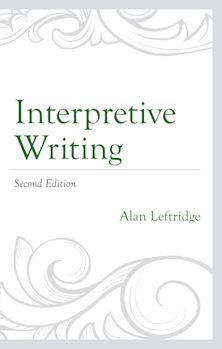- Home
- ACADEMIC
- Linguistics
- Linguistics - Other
- Reagan’s Soviet Rhetoric
Reagan’s Soviet Rhetoric
Telling the Soviet Redemption Story
Reagan’s Soviet Rhetoric
Telling the Soviet Redemption Story
You must sign in to add this item to your wishlist. Please sign in or create an account
Description
How did Ronald Reagan go from calling the Soviet Union an “evil empire” in his first term as president to saying the US had “forged a satisfying new closeness” with the Soviets by the end of his second term? In Reagan’s Soviet Rhetoric: Telling the Soviet Redemption Story, rhetorical scholar Mark LaVoie examines the ways Reagan negotiated his shift from a vehemently anti-communist discourse to a rhetoric of guarded optimism about the future of US-Soviet relations that ultimately revealed a Soviet redemption narrative. Following Reagan’s Soviet rhetoric from his 1947 testimony before the House Un-American Activities Committee to his Farewell Address in 1989, LaVoie considers the President’s use of “Soviet/Nazi analogy,” “historical narrative,” “reciprocity,” and other rhetorical strategies in creating the narrative. Scholars and students of rhetoric, history, and international relations will find this book particularly interesting.
Table of Contents
Dedication
Acknowledgments
Chapter One: Context of the Cold War and Reagan's Rhetoric
Chapter Two: Reagan's Pre-Presidential Soviet Rhetoric
Chapter Three: Reagan's First-Term Soviet Rhetoric
Chapter Four: Reagan's Second-Term Soviet Rhetoric
Chapter Five: Conclusion
Bibliography
About the author
Product details
| Published | Nov 17 2021 |
|---|---|
| Format | Ebook (PDF) |
| Edition | 1st |
| Extent | 141 |
| ISBN | 9781978778092 |
| Imprint | Lexington Books |
| Publisher | Bloomsbury Publishing |
About the contributors
Reviews
-
Well-written and insightful, Reagan’s Soviet Rhetoric: Telling the Soviet Redemption Story offers an analysis of Ronald Reagan's shift from committed cold warrior to a position that admitted the possibilities of Soviet redemption and international peace. Attentive to context and perceptive in his interpretation, LaVoie's contribution to our understanding of Reagan's rhetorical strategies will interest students and scholars in political science, history, and communication, with an interest in the presidency, the Cold War, and the rhetorical construction of international relations.
Mary E. Stuckey, The Pennsylvania State University
-
"Reagan’s Soviet Rhetoric: Telling the Soviet Redemption Story provides a useful discussion of the evolution of Reagan’s rhetoric in relation to the international and domestic political context of the time.”
Robert C. Rowland, The University of Kansas
-
Mark LaVoie’s Reagan’s Soviet Rhetoric offers a unique and important reading of Ronald Reagan’s presidential addresses that will be of interest to historians, rhetorical critics, and scholars of the presidency. By examining Reagan’s pre-presidential oratory and connecting common themes related to anticommunism to Reagan’s presidential rhetoric, LaVoie demonstrates consistency and change in Reagan’s rhetorical attitude toward the Soviet Union. Challenging the idea that Reagan was a monolithic rhetorical agent, this book illuminates how Reagan’s rhetoric vis-à-vis the Soviet Union shifted over time in response to shifting political contexts, underlines Reagan’s dexterity as a public speaker, and amplifies contemporary understandings of how the 40th president of the United States used political rhetoric to achieve political ends.
Stephen J. Heidt

ONLINE RESOURCES
Bloomsbury Collections
This book is available on Bloomsbury Collections where your library has access.


































